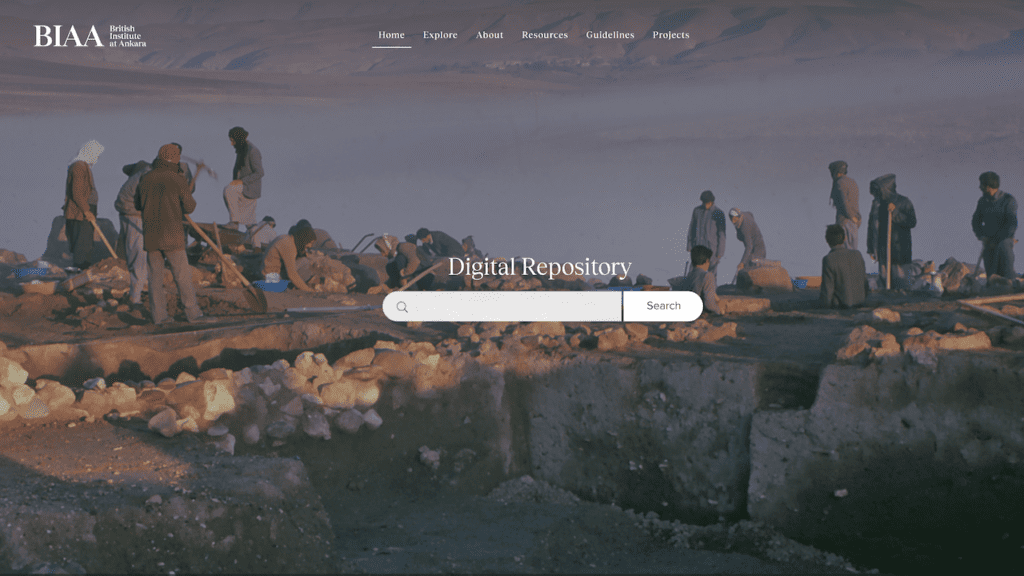The BIAA began the digitisation of its rich archives and varied collections of archaeological and reference materials in the early 2000s, using a bespoke database to preserve and present these digital collections. Since 2018, the Digital Repository Office has been working to transform these old digital databases into a new standardised information system in line with current best practices. The new repository, launched in March 2023, aims to store, manage, and preserve digital archaeological and other research data from these areas. It brings together both born-digital and digitised analogue data from the BIAA collections and makes accessible valuable information on past and ongoing research projects and events organised or sponsored by the Institute. In this regard, the Digital Repository team has been working to make the BIAA’s collections open access, managed using Creative Commons licences and Rights Statement licences, whilst adhering to FAIR (findable, accessible, interoperable, and reusable) principles. Work to link data between collections, as well as between collections and publications, archaeological information, and relevant authorities is ongoing.

The Digital Repository enables online access to the pottery, animal bone and botanical reference collections, as well as photographic and squeeze collections, and archaeological documents and drawings, which are physically stored in the Institute’s Ankara premises. The BIAA’s collections date from as early as the 1940s and comprise items with unique ethnographic, archaeological, and botanical value. An example is the botanical specimens and photographs collected and created as part of regional archaeological rescue projects conducted in the Turkish provinces of Malatya, Elazığ and Adıyaman between the late 1960s and early 1990s.
As part of the ‘Digitalising Turkey’s Botanical Heritage’ project, more than 4,500 plant specimens, wood samples and charcoal samples collected from the region in the 1970s were preserved, photographed, and digitised. This project was made possible thanks to funding from Imagining Futures through Un/Archived Pasts‘ initiative, funded by AHRC/UKRI, the Stevenson Family Charitable Trust, the Charlotte Bonham-Carter Charitable Trust, and the Seven Pillars of Wisdom Trust.
Aşvan and Tille Höyük photographic collections stand out as they depict the rural life in these areas prior to dam constructions of the 1990s, preserving knowledge of traditional practices and ways of life now rare or completely lost as these areas are now completely flooded. The Tille Höyük ethnographic photograph collection was digitised and made openly accessible not only through the BIAA Digital Repository, but also on JISC Archives Hub and Archives Portal Europe thanks to a grant received by the latter.

Furthermore, data related to the BIAA-led and supported research projects and events have been catalogued and are now accessible via the Digital Repository. Storing and preserving born-digital data for some of the most recent research projects, such as Safeguarding Archaeological Assets of Turkey (SARAT) and the Feriköy Protestant Cemetery Initiative is underway. As part of the latter, 2D scans and 3D models of tombstones in the British Section of the cemetery were created. Data related to these 3D models will soon be available in the Feriköy Protestant Cemetery Collection.
The Digital Repository continues to grow as new digitisation and research projects are completed. We are also collaborating and sharing knowledge with several international partners such as SEADDA, ARIADNEPlus, and the other seven British International Research Institutes.
You can read more about our past and ongoing projects and collaborations here, and access publications on the digitisation work from the BIAA Digital Repository team and project specialists from here.

